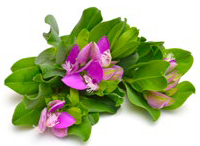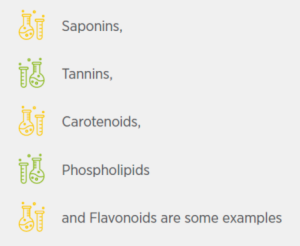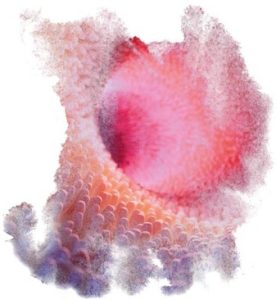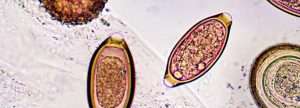 27 Jun 2023
27 Jun 2023
The efficacy of natural products in times of sustainability
Introduction
 Consumers have increasingly sought out the availability of natural products on store shelves, whether as a source of food, personal care products or even therapeutics. The increased interest in this class of products is driven by sustainability, food safety and the welfare of the animals and people involved in the process.
Consumers have increasingly sought out the availability of natural products on store shelves, whether as a source of food, personal care products or even therapeutics. The increased interest in this class of products is driven by sustainability, food safety and the welfare of the animals and people involved in the process.
The animal product industry is no different. Amidst the growing demand for more organic and sustainable production, the replacement of synthetic molecules with natural compounds is increasingly seen as an important alternative.
As the name suggests, unlike a product of natural origin, synthetic molecules are man-made. Highly purified and manipulated in a laboratory environment, their action is usually highly targeted to a specific receptor organ, although they may alter the function of other structures in the body to a lesser extent.
![]()
Although they are very effective, their use is not always in line with the sustainable production that is so desirable today. They can be associated with the generation of undesirable residues for animals and the environment, as well as with a manufacturing process that generates varying levels of pollutants for our planet.
Natural products, on the other hand, are derived from sources found directly in nature, which can be of animal, plant or mineral origin.

Probiotics, prebiotics, organic acids, plant extracts and herbal products are some of the most researched alternative and natural sources today. In the case of natural plant products (phytogens), their ability to act on several key organs and to participate in metabolic interactions and various biological activities in the body has been observed in different animal species.

Some existing differences in the production process of phytogenic products, as in the case of plant extracts and herbal products, determine their classification and potency.
In the case of extracts, due to the need to dissect and chemically extract the active compounds, a partially natural product is obtained, with less variability of compounds in its composition, while being able to deliver a higher concentration of the principles of interest.
It is precisely this diversity of compounds that allows greater exploitation of synergies – the association of the actions of different substances present in one or more species used in the product.
It is important to stress that herbal products have different formulations and are therefore unique. Aspects ranging from the place where a particular raw material is grown – including soil and climatic conditions, for example – to the time of harvest, the vegetative stage of the plant and the selection of the ideal part for the intended purpose (roots, stems, leaves, seeds or flowers) contribute to the uniqueness of each product.

In addition, the standardisation of the active principles in each raw material and the achievement of the exact proportion of each plant to be used are part of a strict production and quality control within the manufacturing environment.
Once unique, they cannot be compared with each other and require scientific studies to be carried out, from the most basic to the most robust and technological, in order to provide all the ethical and scientific support regarding their mechanism of action and the results expected in the field.
In this sense, many studies have been published on the use of phytogenics in animal production, especially as alternative sources to replace synthetic products such as vitamins, minerals and growth promoters in breeding, the so-called antibiotic growth promoters (AGPs), which are already banned in many countries.

By affecting the composition of the microbial flora and the health of the animal’s gut, improving the absorption of nutrients from the diet and the health status of the herd, the use of AGPs has a direct impact on feed conversion and weight gain of the animals, and consequently on the profitability of the operation.
![]()
But how can polyherbal complexes surpass, or at least equal, the benefits of using AGPs?
Some of the phytochemical compounds found in herbal products:

Their functionalities are broad and include the concepts of intestinal health, improvement of intestinal barriers, establishment of a favourable microbiota for animal development, as well as synergy with probiotics and other phytobiotics.

The compounds may also have:
At slaughter, studies report positive effects on the quality of the carcass of the animals and underline the benefit of not requiring a waiting period after use, unlike the use of antimicrobials in animal production.
Beesides replacing AGPs, the use of botanical complexes can also contribute to scenarios where the use of heavy metals and chemicals in general in animal production is being debated, due to the harmful effects they can have on the environment and human health.

 Another area of application for botanicals is the replacement of synthetic vitaminshttps://nutrinews.com/en/use-of-the-active-form-of-vitamin-d3-in-broiler-breeders/, such as C, E and choline. In addition to the advantage of being natural additives, polyherbal complexes are highly stable in terms of production processes and subsequent product storage, unlike synthetic sources.
Another area of application for botanicals is the replacement of synthetic vitaminshttps://nutrinews.com/en/use-of-the-active-form-of-vitamin-d3-in-broiler-breeders/, such as C, E and choline. In addition to the advantage of being natural additives, polyherbal complexes are highly stable in terms of production processes and subsequent product storage, unlike synthetic sources.

As with any scenario of challenges and limitations, new opportunities arise. The need to maintain the high efficiency and productivity of current herds is driving the search for alternative sources that can contribute to building an increasingly sustainable, but also profitable, animal production.
In this journey, polyherbal complexes can be considered as efficient working tools for producers and other different characters of animal production, such as veterinarians, consultants and nutritionists, in their search for continuous improvement of the animal protein chain.
ABOUT NUPROXA

Nuproxa is a company specialising in natural solutions for the animal health and nutrition industry. Its mission is to offer high quality products with a strong cost-benefit ratio and safety.
The company is FAMI-QS certified and its products have proven efficacy in animal health and welfare, with tests carried out in the world’s most prestigious research institutes and universities and proven results in real experimental and commercial conditions.

Present in more than 25 countries in Latin America and Europe, Nuproxa is growing at an average rate of 20% per year as a result of the company’s strong commitment to its commercial partners, to the R&D of its products and, above all, to its customers.
For more information visit: https://nuproxa.ch/en/
Subscribe now to the technical magazine of animal nutrition
AUTHORS

Hybrid Rye Potential in Laying Hen Feed Rations
Gwendolyn Jones
A day in the life of phosphorus in pigs: Part I
Rafael Duran Giménez-Rico
Use of enzymes in diets for ruminants
Braulio de la Calle Campos
Minerals and Hoof Health in the Pregnant Sow
Juan Gabriel Espino
Impact of Oxidized Fats on Swine Reproduction and Offspring
Maria Alejandra Perez Alvarado